In July, U.S. President Donald Trump made waves in Brussels by suggesting that the U.S. might “do its own thing” if NATO Alliance members don’t meet defence spending commitments.
This article was written by Owen Daniels, an associate director with the Middle East Security Initiative in the Atlantic Council’s Scowcroft Center for Strategy and Security. He is also an Assistant Managing Editor of Young Professionals in Foreign Policy’s Fellowship Program. Follow him on Twitter at @OJDaniels.
He left NATO leaders with “whiplash” by alternately berating and praising them. The U.S. defence establishment has worked hard to reassure allies about the American commitment to the Alliance even as the president’s comments sow uncertainty.
On the surface, then, recent reports that the U.S. is working with Saudi Arabia, the United Arab Emirates, Egypt, Jordan and other partners to establish an “Arab NATO” might seem surprising, given Trump’s apparent contempt for the original item.
But concepts very similar to the Middle East Strategic Alliance (MESA), as Arab NATO would be known officially, have been bandied about by previous U.S. administrations as counterbalances to Iran and to decrease U.S. security commitments. In the past, the Arab NATO concept faced stumbling blocks based on the capabilities of potential member militaries, as well as the unwillingness of involved states to work toward greater military interoperability or intelligence sharing. Many of these problems remain, and political fractiousness, especially in the Gulf, poses a major hurdle for any potential military bloc.
With these thoughts in mind, here are several key questions that the MESA states (the GCC, Egypt, and Jordan) and Trump administration will likely need to answer.
What’s new?
At a glance, there isn’t much that appears to distinguish MESA from previous attempts to unify some of the Arab states against the threat from Iran.
Given their comparatively stable politics position in Iran’s shadow, the GCC states have long drawn U.S. policymakers’ gazes as the foundation of a counterbalance to Tehran. In 2012, the Obama administration launched the U.S.-GCC Strategic Cooperation Forum, a foreign-defence ministerial intended to encourage collective action on regional security issues on the part of the Gulf states with U.S. support. It tried to build on the forum in 2015 and 2016 with U.S.-GCC summits at Camp David and in Riyadh, resulting in joint working groups on missile defence, counterterrorism, cybersecurity, illicit finance, and maritime security, among other areas.
But the revelation of the U.S.’s secret nuclear negotiations with Iran created mistrust with Gulf partners and limited the impact of the working groups. Obama faced difficulty attracting leaders to the summit given the nuclear talks and his public comments about the Gulf states and Iran sharing the region; GCC heads of state sent deputies in their places.
These past efforts to build a counter-Iran alliance, or even improve Gulf military and intelligence coordination, failed due to a lack of urgency and unity within the GCC and, eventually, mistrust of U.S. intentions toward Iran. The GCC is not a political monolith, and its members have different approaches to and relations with Iran. If MESA is to succeed, its backers will be counting on a couple of new dynamics.
One factor is the apparent impetus from the region. Saudi leadership proposed the idea of a security pact to counter Iran when Trump visited Riyadh last year. While the U.S. hasn’t provided an ironclad security commitment should Iran attack Saudi Arabia or other Gulf states, the Saudis and Emiratis view the Iranian threat as compelling enough to take action themselves, and the Trump administration appears willing to help them.
New leadership is another factor that could make a major difference. From the outset, the Trump administration has focused on Iran’s destabilising regional role and the inadequacy of the JCPOA. Secretary Mattis’ positions on the Islamic Republic’s role in the region align more closely with the potential MESA members, and Saudi Crown Prince Mohammed bin Salman appears intent on securing Saudi military leadership in the Gulf. Despite differences in their Yemen policies, Saudi and the UAE remain closely aligned in their Iran concerns and appear willing to try to take their GCC allies with them.
Closer alignment between the U.S. and Gulf partners may increase the potential for this proposed alliance to get off the ground, but MESA members still face significant political hurdles to military cooperation.
How will the alliance navigate political hurdles?
One of the most blatant potential stumbling blocks to progress toward MESA is the Gulf crisis, which has torn the GCC asunder. The crisis began in May 2017, when fake news about Qatar’s emir precipitated a total blockade of the peninsular state by Saudi Arabia, the UAE, and Bahrain, along with Egypt. The 2017 developments marked an escalation of longstanding tensions over Qatar’s foreign policy, including its support for the Muslim Brotherhood and warmer relations with Iran.
Qatar and its blockaders appear at a deadlock in normalising relations – Saudi Arabia was rumoured to be considering building a moat to separate Qatar from the rest of the Arabian Peninsula, and Qatar has taken the UAE to international courts over the blockade. Committing to MESA could certainly go a long way toward repairing Qatar’s relations with its neighbours, but it’s difficult to imagine any near-term possibility for cooperation.
Qatar’s differences with the Saudis and Emiratis are a more extreme example of the political differences that have impeded the GCC security coordination. Although Bahrain traditionally cooperates with Saudi Arabia, Kuwait and especially Oman take less bellicose political stances toward Iran for reasons of geography and history. Even Saudi Arabia and the UAE have been slow to coordinate on joint command centres for counterterrorism and other issues.
In military terms, political differences have translated into a reticence to share sensitive details on capabilities and intelligence necessary to work toward goals like integrated missile defence. Iran’s ballistic missile program is one of its primary threats to the Gulf, and integrating the GCC’s various U.S.-made missile defence systems requires sensors and other technologies to be placed in one country for the benefit of all; otherwise, there are gaps in the system, rendering it ineffective without GCC-wide buy-in.
Saudi Arabia and the UAE’s willingness to blockade Qatar for its divergent policies may spook Kuwait into falling in line with their broad policy goals, though Oman has been especially vocal in the past about avoiding shared military commitments like MESA. Clearing such political hurdles will be critical if the alliance is to break new ground.
What’s Israel’s stance?
Improved Gulf-Israel relations due to shared Iran concerns have been one of the most significant regional political developments over the last decade or so; Israel has workable, if not necessarily cordial, political and security relations with Jordan and Egypt. It’s close to unthinkable to imagine that the Trump administration would try to advance an Arab alliance along Israel’s eastern and southern borders without consulting Jerusalem, warmer relations or no. Washington still maintains the Qualitative Military Edge (QME) policy, which ensures the U.S. conduct regional weapons sales that threaten Israel’s military superiority.
Better behind-the-scenes ties between Israel and especially the Gulf states have made the prospect of an Arab alliance that puts Iran in the crosshairs viable, but formal participation in a potential pact is still a bridge too far. The administration and its Arab partners have discussed that Israel could quietly cooperate with MESA via coordination with the U.S., and the Saudis and Emiratis seem willing to combine intelligence capabilities. But recent controversy in Saudi over linkages between MBS and the Trump administration’s alleged peace plan have exposed the limits of Arab-Israeli cooperation. The U.S. will play an important role in ensuring that diplomatic backchannels remain open between the alliance members and Israel.
Will there be an Article 5?
One of the cornerstones of the NATO Alliance is its collective defence clause, Article 5 of the North Atlantic Treaty. Article 5 codifies allies’ commitment that an attack on one member “shall be considered an attack against them all,” and that member states will work together or individually to aid the attacked by “such action as it deems necessary, including the use of armed force.” There is flexibility as to whether Article 5 requires every member of the alliance to participate in a collective response to adversary action, but, in practical terms, a coalition of willing member states would likely undertake a response. Article 5 was only invoked once, on behalf of the U.S. after September 11, 2001.
Real the full article courtesy of RealClearDefense here.




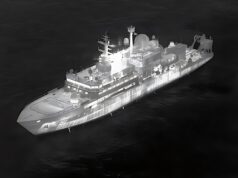
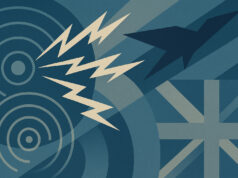
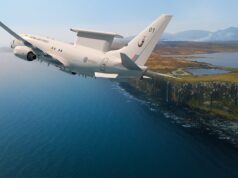
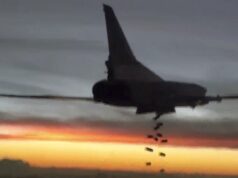
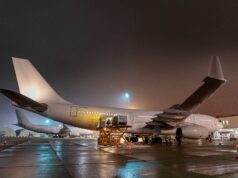

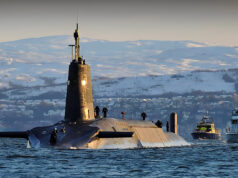



I have a question:
Given that it seems to be an open secret that the arab nations are sponsoring islaming terrorism on the sly, and that I have yet to see Iran support any kind of terroristic activity in the west, or much of anything outside their immediate area; why are we not making friends with Iran against the arabs?
Because the arabs have the oil of course.
And Iran doesn’t? BPs roots were in Iran.
Afghanistan – Taliban, Iraq – Shiite Militias, Syria – Assad, Lebanon – Hezbollah,
Gaza – Hamas, Yemen – Houthis. What do all these Terrorists have in common Nick ?
I’m going to go out on a limb and guess that they are all supported by Iran?
Probably shouldn’t be friend with either of them, just because Iran hasn’t attacked the west on its soil does make them (the Iranian government) better. The Majority of young Iranians would not want he west to support their government, that’s speaking for first hand experience having visited Tehran on several occasions in the 000’s before things deteriorated.
time trump just shut the f**k up
President Trump has a perfect right to criticize NATO countries with 1-1.5 % of GNP defense spending. Since some countries DID increase their defense budgets after last years criticism it may just be working. I don’t think he’s going to do as you propose.
and that I have yet to see Iran support any kind of terroristic activity in the west, or much of anything outside their immediate area;
Well there were the terrorist attacks in 2012 which targeted Israeli diplomats in Georgia, India.and Thailand which saw several Iranians arrested.
Then there was the attack on a Jewish centre in Argentina in 1994 which saw 85 people kileld. Hade Soleimanpour was arrested in the Uk in 2003 on an Argentine arrest warrent , but released due to a lack of evidence.
A lot of Taliban/Al Q resurgence in the west of Afghanistan is down to Iran (google it) There is even strong evidence that a lot of the taliban (as well as Al Q) were given sanctuary in Iran after 2001.
The other month (june) 6 Iranians were arrested in Belgium of terrorist charges.
in 2012 there was the Burgas bus bombing in Bulgaria which saw 6 people killed.
Then there the little matter of Iranian political belligerence. Be it threatening war on anybody who doesn’t support their way (Europe, the US) Attacking Embassies, or even UN troops in Lebanon who were there protecting…Muslims.
Then there is how it loves to destabilise other countries be it Bahrain, Yemen, Nigeria (yes Nigeria), Gambia (2010) Senegal (2011) Morocco (May 2018)
Then there is North Korea, Iran funds the North Korean nuke program, which no doubt has taken a hit with the recent US/NK accord. Now it has revealed that it is going to base Short range ballistic missiles in iraq after the Israelis have taken out a large number of its bases in Syria. Whilst a few people will say the Jews are simply getting what they deserve. (And I don’t subscribe to that frame of mind) the fact remains the faithful (in this case Shia) have a nasty habit of attacking the friends of their enemy in which to isolate them. The Mullahs are bullies plain and simple and they do what bullies do. The vast majority of European nations are simply doing business with Iran due to money and if it means looking the otherway whilst they they oppress their own and ferment trouble elsewhere, then sod the European Human rights law they claim to subscribe to.
Me, I wouldn’t piss in the direction of Iran, never mind give them the steam off my shit.
Locherbie. Iran sponsored the destruction of Pan-Am Flight 103, via Assad pere and the Popular Front for the Liberation of Palestine’s top bomb makers. It remains the largest single loss of life on U.K. soil to terrorism. But your point about Saudi Arabia stands. Quite why extreme Wahhabi Islam is allowed to be promoted in the U.K., and bya steady flowof imported Islamofascist ‘preacher’s stroke recruiters, must come down to financial and economic interests. It is bonkers.
If only Drake had grabbed Venezuela.
Um. Arab League? I am not going to read the article as the idea is stupid.
The key to under standing the Middle East is simply this, they all hate each other. The best way to keep the region safe for us is to keep them in that state. Arabs have always hated Persia because the latter are better than them as history shows. We may laugh at the Iranians and their silly stunts, but without huge support from the West the Arab world wouldn’t be any better off and probably a lot, lot worse. Same reason why the Arab doesn’t like the Turk.
The US now buys most of her oil from Canada and Mexico not the Middle East. And the US is ever expanding it’s own hydrocarbon production. China though needs oil from that region and that’s why there is still interest there for the US. Remember oil isn’t just fuel its plastics, fertiliser, and all sorts of stuff. In fact it is a waste to burn the stuff. China needs ME oil to build things for American companies, who have made a fortune from off shoring, to sell to Americans and the rest of us.
Our descendants will wonder why we just didn’t take the oil.
My first line is wrong…….
The Arab League already fills some of that space as an alliance for the Arabs.
But taking it further to a NATO type alliance won’t work. NATO works because the member states are high functioning societies.
David T wrote:
The key to under standing the Middle East is simply this, they all hate each other.
Just this week the head of the IDF stated that their biggest strength is the disunity of the Arabs.
Well if he continues to follow my advice he will do well! 🙂
Arab societies are low trust.
I’m more worried about the Saudi military build up. If the Saudis turned on the west or fell to a militantly Islamic(even more than they are already) take over, we’ve armed them to the teeth with all the latest gear.
The Saudis are living on borrowed time all the military equipment in the world will not save them once the oil runs out. Iran on the other hand has the population, knowledge and a (more) diverse economy, not to mention the fact they’ve been around since day dot
I’m more worried about the Saudi military build up. If the Saudis turned on the west or fell to a militantly Islamic(even more than they are already) take over, we’ve armed them to the teeth with all the latest gear.
Don’t the Arabs can’t fight for toffee and I’ve trained Saudi, Egyptians and,Syrians. Good at intimidating the sick lame and lazy, but when somebody stands and fight on an equal footing they don’t know what to do.
The rebels in Yemen are kicking the Saudi’s back side. There is owning equipment and then there is being able to use it. We flog them kit because of the oil. We bribe them. We flatter their ego because its all macho military stuff. Plus our industry gets big pay offs too. Now your Turk is a different matter. But even their best are only just about equally to our line infantry. Our biggest enemy is our politicians who don’t see the danger. In a possible future conflict the number of Turks plus trouble on our street from their supporters could course us many problems if European defence continues to decline and the US doesn’t help.
“But the revelation of the U.S.’s secret nuclear negotiations with Iran created mistrust with Gulf partners and limited the impact of the working groups.”
Stabbed in the front. Love or loath Trump, the decision to rescind (I would embrace renege since I it justified on all counts) on former President Obama’s surreal treaty with Iran was right. I just wonder if any of the possible successors to the White House will try to resurrect Obama’s Folly?
Barry you realise that the deal is the only option. One way or another they will get the bomb if they want. It is a delaying tactic only until war
It isn’t much of a deal then is it? Just appeasement, and appeasement gets us nowhere.
J
Only option besides war? Their is always another play if you are willing to go the distance.
For instance there is sanction their economy in order to cause economic collapse. While also fermenting growth in the already present internal dissent. This has several possible outcomes.
Scenario 1. In capitulation to demands and a dismantled Nuclear program. While also ending the support for terrorism and proxy wars by Iran, that are destabilizing countries from Africa to the Middle East.
Scenario 2. Internal dissent gets out of hand and instead of acting to pressure the Iranian leaders, boils over into civil war. Every thing in S1 happens by default but the body count is exponentially higher.
Scenario 3. The Iranian regime is strong enough to withstand economic meltdown and dissent. While also not bowing to pressure on it’s Nuclear program. Result: Sanctions would further increase the amount of investment in American, Mexican, Brazilian and Canadian oilfields. This would however not stop the Nuclear program but would slow it down and curtail how much money is available for Iran to send to it’s proxies. In this scenario the only remaining option for total dismantling of the program would be war.
Scenario 4. (Worst Case) Iran attempts to get the sanctions lifted by closing the Straits of Hormuz with small boats, Anti-Ship missiles, and mines. Causing a shooting incident with the USN. Before their economy and military had been weakened by extended use of sanctions while also allowing Tehran to wave the Bloody Shirt to clamp down on dissent. Result: Massive amount of Iranian casualties and the forced dismantling of their weapons program. In addition to the destruction of likely the bulk of their power grid, water infrastructure, and transport infrastructure. Not a happy ending for the mullahs.